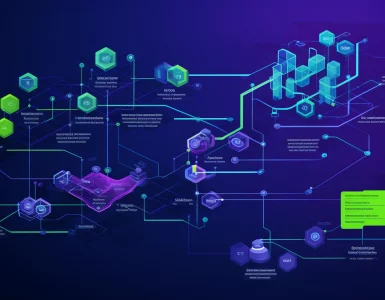Software developers often have to feel the weight of the struggle of preparing for interviews more than several other professionals. This is because, as a developer, you will have to persist through verbal interviews and several coding exams, whiteboard tests, and behavioral interviews.
Unsurprisingly, developers work hard to prepare for technical interviews by solving challenges, reading tutorials, and exploring tricky interview questions.
A typical coding interview involves writing the code in real-time on a whiteboard or collaborative editor. You are given 30 to 45 minutes to solve the problem. The interviewer will look at your code to see if you meet the role’s requirements. It is your responsibility to show them that you have the skills. Your communication skills are important as you must explain your thought process while typing code.
To stand apart from the beginning, you can communicate your approach to the interviewer even before you start to code to validate your approach. Most candidates do not care about sharing their thought processes and end up coding an unacceptable approach.
This article shares some tips to stand out in a coding interview.
1. Ask for clarifications
A significant distinction between verbal and technical coding interviews is that you can explore the question on deeper technical grounds. You can ask for clarification if you are unclear about the exact expectation from the question.
It is not uncommon to see many candidates start solving problems without asking for clarification. Most of them realize half the way through solving the problem that they went in the wrong direction. For instance, if the question is about resetting an array by removing all the empty elements, you can ask the interviewer whether you are allowed to use an array.length function or not.
An ideal software development candidate is the one who asks for every detail and the requirement of the project to ensure that all business needs are met. To practice, you can have a brainstorming session with your colleagues or friends.
Remember, you must ask good questions that demonstrate your problem-solving strategy, not random queries.
2. Demonstrate analytical thinking
The primary goal of a technical coding interview is to challenge your analytical thinking. Learning a programming language is not difficult; nurturing problem-solving skills makes you unique as a candidate. The interviewer is trying to evaluate your ability to foresee potential issues when writing a program.
Be prepared to defend yourself against why you chose a particular technology for the problem. For example, if you opted for a relational database instead of a nonrelational one, you can be asked to clarify your approach. The trick here is not to be biased toward a particular technology. Instead, it would be best if you focused on the needs of the business rather than your personal favorite. Analytical thinking is a valuable skill that indicates that you will take a logical approach to complex problems to deploy optimized solutions rather than sticking with a programming language, framework, or platform you like.
3. Show willingness to learn
An example of a bad interview is when a candidate states they have fluency with a particular programming language and don’t want to explore new technologies. It portrays you as someone who is not willing to learn. Such an approach might be okay if you’re a freelance developer, but companies prefer software engineers who are self-driven learners.
Not just for technical interviews but as a habit, you must explore new domains that might interest you. For instance, you might find DevOps and AI interesting if you are a backend developer. Make it a point to mention during an interview what you are interested in and how you are educating yourself. When you show your willingness to learn, you become an attractive candidate. You don’t have to worry about mastering the new programming language or technology completely. The point of this approach is that you keep learning more about technologies to broaden your knowledge. It helps you find new strategies to solve a given problem.
4. Tell them about your hobby project
You need to start one if you already don’t have a hobby coding project. Companies find developers who are passionate about hobby projects attractive. It not only demonstrates your dedication to the profession but also speaks of the technology you are currently using or exploring.
While it might seem odd, only a fraction of software developers have hobby projects, so if you maintain projects outside the work, don’t be shy to show off your accomplishments at home.
Conclusion
Today, coding interviews evaluate more than just your technical skills. Companies strategize technical interview rounds in a manner to anticipate your structured analytical thinking, eagerness to learn, and ability to persevere under pressure. We hope these tips will help you prepare for your following technical interview.
Talent500 is one of the most popular global remote team-building platforms that Fortune 500 companies and fast-growing start-ups use. Join the elite talent pool to get discovered by the best companies. Sign up here.






Add comment